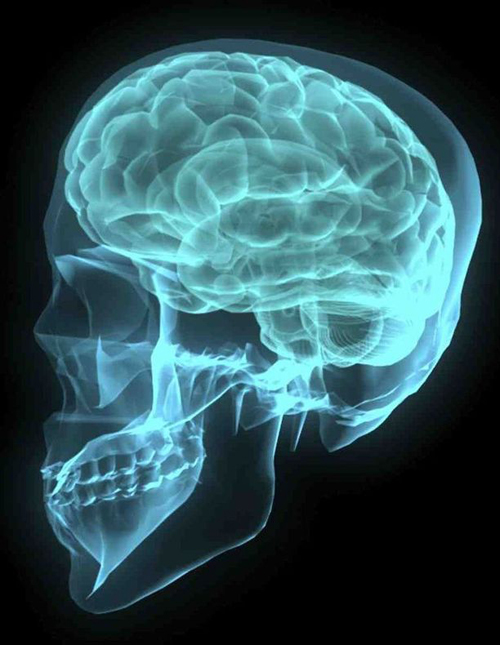The Brain's Response to Inhalants
Posted on May 27, 2020
Hair spray, gasoline, spray paint, butane gas, and others (huffer, huffing, sniffing)"
Adapted from the Mind Over Matter Inhalant Series by the National Institute on Drug Abuse · National Institutes of Health
 Maybe you haven't heard of inhalants, but you probably come across them pretty often. Hair sprays, gasoline, spray paints -- they are all inhalants, and so are lots of other everyday products.
Maybe you haven't heard of inhalants, but you probably come across them pretty often. Hair sprays, gasoline, spray paints -- they are all inhalants, and so are lots of other everyday products.
Many inhalants have a strong smell. That's why they're called inhalants: Some people inhale the vapors on purpose.
Why would anyone do this? Because the chemicals in these vapors can change the way the brain works, and those changes can make people feel very happy for a short time. But inhalants can also do harm.
They Don't Go Away When You Exhale
Inhalant vapors often contain more than one chemical. Some leave the body quickly, but others are absorbed by fatty tissues in the brain and nervous system. They can stay there for a long time.
One of these fatty tissues is myelin -- a protective cover that surrounds many of the body's nerve cells (neurons). Nerve cells in your brain and spinal cord are sort of like "Command Central" for your body. They send and receive messages that control just about everything you think and do. If you picture nerve cells as your body's electrical wiring, then think of myelin as the rubber insulation that protects an electrical cord.
One problem with inhalant use over the long term is that the chemicals can break down myelin. And if myelin breaks down, nerve cells may not be able to transmit messages.
Beyond the Brain
One reason scientists are so interested in inhalants is that these chemicals affect the body in lots of ways. While some effects are due to changes in the brain, others are direct actions on other parts of the body, such as the circulatory system.
Did you know that some inhalants directly increase the size of blood vessels, allowing more blood to flow through? And some inhalants can make the heart beat faster. This can be a serious problem, especially if someone inhales butane gas. Butane, found in cigarette lighters and refills, makes the heart extra sensitive to a chemical that carries messages from the nervous system to the heart. This chemical, noradrenalin, tells the heart to beat faster when you're in a stressful situation -- like if something suddenly scares you.
If the heart becomes too sensitive to noradrenalin, a normal jolt of it may cause the heart to temporarily lose its rhythm and stop pumping blood through the body. Some inhalant users die this way.
Changes in the Brain
Damage from long term use of inhalants can slow or stop nerve cell activity in some parts of the brain. This might happen in the frontal cortex, the part of the brain that solves complex problems and plans ahead. Or if inhalants get into the brain's cerebellum, which controls movement and coordination, they can make someone move slowly or clumsily.
Studies show that neurons in a part of the brain called the hippocampus can also be damaged by inhalants. The damage occurs because the cells don't get enough oxygen. Since the hippocampus helps control memory, someone who repeatedly uses inhalants may lose the ability to learn new things, may not recognize familiar things, or may have a hard time keeping track of simple conversations.
For printed copies of this publication contact National Clearinghouse for Alcohol and Drug Information, P.O. Box 2345, Rockville, MD 20847, or call them at 1-800-729-6686.
“Mind Over Matter” is produced by the National Institute on Drug Abuse, National Institutes of Health. These materials are in the public domain and may be reproduced without permission. Citation of the source is appreciated. [NIH Publication No. 97-4038.]
For more information on Inhalants from the National Inhalant Prevention Coalition Website--English and Espanol, visit http://www.inhalants.org.
SEE ALSO:
More How Drugs and Alcohol Affect the Brain and Body
Sexual Bias Articles
Race Relations Articles
Mental Health Articles
WA. Counselor Directory: find a therapist near you
How helpful is this web page to you?
(and how can we can improve this page for you?)
not helpful
very helpful
Other Articles
The Brain's Response to Hallucinogens
Hallucinogens --LSD (acid), MDMA (an amphetamine called ecstasy), PCP (often called angel dust), and Diviners Mint. Adapted from: Mind Over Matter Hallucinogens Series National Institute on D... read more
The Brain's Response to Methamphetamine
Adapted from: Mind Over Matter Methamphetamine Series National Institute on Drug Abuse · National Institutes of Health “Speed”, “meth”, “chalk”, &ld... read more
The Brain's Response to Nicotine
Nicotine -- cigarettes, snuff (chewing tobacco) -- sure it's legal but... For centuries, people have chewed and smoked tobacco, which comes from the plant nicotiana tabacum. The reason tobacco i... read more



